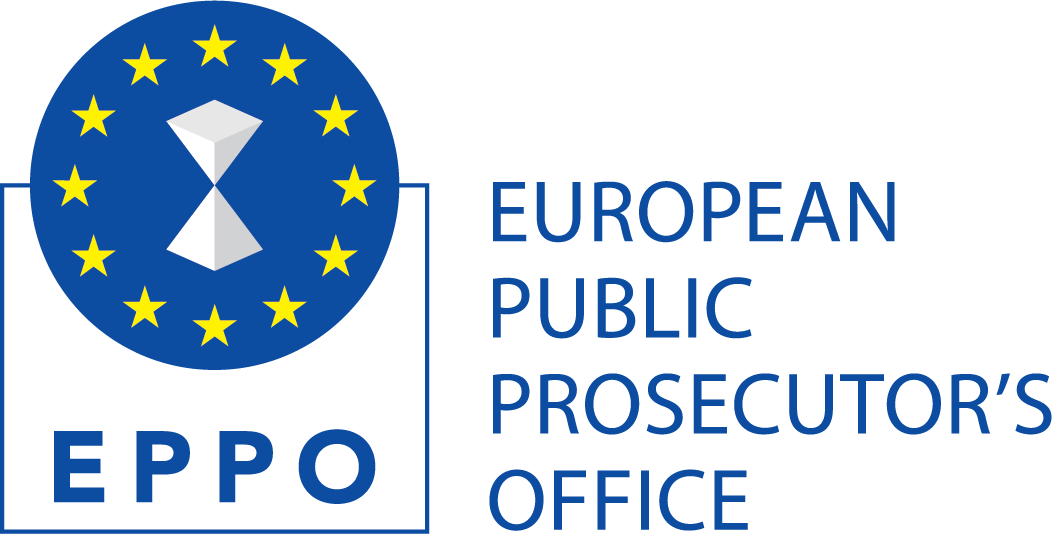
by John McCarthy Consulting Ltd. | Jul 24, 2022 | Blog, News
According to the Financial Action Task Force (FATF) the definition of a Trust and Company Service Providers (TCSP) is a business, that provides any of the following services to third parties:
- Acting as a formation agent of legal persons Acting as (or arranging for another person to act as) a director or secretary of a company, a partner of a partnership, or a similar position in relation to other legal persons;
- Providing a registered office; business address or accommodation, correspondence or administrative address for a company, a partnership or any other legal person or arrangement;
- Acting as (or arranging for another person to act as) a trustee of an express trust or performing the equivalent function for another form of legal arrangement;
- Acting as (or arranging for another person to act as) a nominee shareholder for another person.[1]
The above FATF definition of a ‘TCSP’ excludes providers of TCSP services within financial institutions, law firms, notaries, other independent legal professionals and accountants, who will be separately regulated within their own professions.
The Criminal Justice (Money Laundering and Terrorist Financing) Acts 2010 to 2021 (the Act), requires TCSPs to help prevent money laundering or terrorist financing and register as designated persons with the AML Compliance Unit of the Department of Justice. They must also apply Customer Due Diligence (CDD) to all their transactions including the retention of certain customer identity documents, verify client data with the RBO register, maintain an AML Policies & Procedures Manual and provide staff with regular AML training.
There are currently around 380 TCSPs registered with the Department of Justice AML Compliance Unit and the latest list of registered TCSPs as of June 2022 may be viewed here.
[1] FATF ‘Guidance For A Risk-Based Approach for Trust and Company Service Providers’ (June 2019)
Are your AML Policies Controls & Procedures up to date?
We have just released our latest Anti-Money Laundering Policies Controls & Procedures Manual (March 2022) – View the Table of Contents click here.
We have also just released an updated AML webinar (March 2022) available here, which accompanies the AML Manual. It explains the current legal AML reporting position for accountancy firms.
To ensure your letters of engagement and similar templates are up to date visit our site here where immediate downloads are available in Word format. A bulk discount is available for orders of five or more items if bought together.
For our latest Audit Quality Control Manual (October 2021) (implementing the latest Irish Audit & Accounting Supervisory Authority standards including ISQC1 on audit quality control) click here. View the Table of Contents here.

by John McCarthy Consulting Ltd. | Jul 5, 2021 | Blog, News
A recent article by the Independent revealed that a Rathfarnham family home address had been used in the registration of over 100 companies. See the full article here.
The article reports that two tenants resident at the address, had use the owner’s address without his knowledge. This highlights a major weakness in the CRO’s procedures for company set up where the trust placed in the ‘self-declaration’ process has been found wanting.
The Office of the Director of Corporate Enforcement (ODCE) and An Garda Siochana were contacted by the homeowner.
A spokesperson for the Department of Enterprise Trade and Employment which oversees the CRO confirmed that the CRO does not verify the identities of directors or secretaries of companies.
This latest development calls into question the serious lack of background verification carried out by the CRO which ensures that the Office never calls into question instances where multiple addresses are listed for the same director, not to mention the increased risk that these businesses could be used for money laundering activity.
A similar problem exists at UK Companies House where a consultation has been carried out called the ‘Corporate transparency and register reform’. Proposals include making companies using the FRS 105/102 accounts frameworks in the UK, declare their turnover, among other recommendations, to help verify that they genuinely qualify for these much reduced disclosure regimes. The results of the consultation have not yet been announced, but similar moves be follow in Ireland.
For more about accountants’ AML compliance obligations, see our AML Policies, Controls & Procedures Manual for 2021.
The Manual contains all the latest requirements relevant to accountants contained in the Criminal Justice (Money Laundering and Terrorist Financing) Acts 2010 to 2021 now fully in force. Future blogs will look at various parts of the new and existing provisions of this legislation.
For more blogs please visit this link and for our publications and manuals and services click here.

by John McCarthy Consulting Ltd. | Jun 28, 2021 | Blog, News
The European Union has for some time, been trying to work out how best to combat financial crime that impacts EU finances.
Formally launched on 1 June this year, a new office, the European Public Prosecutor’s Office (EPPO) has been created. It was first established in 2017 with powers to investigate and prosecute crimes against the EU’s financial interests including money laundering.
The mandate of the EPPO’s is ‘to investigate, prosecute and bring to court crimes against EU budgets, such as fraud, corruption or serious cross-border VAT fraud’.
The EPPO’s Chief Prosecutor is Laura Codruța Kövesi, the former Chief Prosecutor of Romania’s National Anticorruption Directorate and former Romanian Prosecutor General.
Here is an interview with the new Chief Prosecutor.
The remaining EPPO staff consists of two Chief Deputies and other prosecutors drawn from the 22 participating EU countries. Unfortunately, Ireland is not participating in the EPPO along with Denmark, Hungary, Poland and Sweden. Sweden is said to join in 2022. Ireland have, however, signed up to the PIF Directive (2017/1371) which protects against the misuse of EU funds, and protecting EU taxpayer’s money. Ireland have the option to join the EPPO at any time.
The EPPO already faces a mountain of work, with over 3,000 reports submitted for action. According to Kövesi, the first new reports of alleged fraud against the EU budget, were submitted from Italy and Germany and arrived within hours of the EPPO’s online reporting system going ‘live.’ We wish Laura and her team success in the fight against financial crime.
For more about accountants’ AML compliance obligations, see our AML Policies, Controls & Procedures Manual for 2021.
The Manual contains all the latest requirements relevant to accountants contained in the Criminal Justice (Money Laundering and Terrorist Financing) Acts 2010 to 2021 now fully in force. Future blogs will look at various parts of the new and existing provisions of this legislation.
For more blogs please visit this link and for our publications and manuals and services click here.

by John McCarthy Consulting Ltd. | Jun 11, 2021 | Blog, News
In a May 2021 report by Transparency International (TI) called ‘Access Denied? Availability and Accessibility of Beneficial Ownership Data in The European Union’ the authors explain how the great majority of countries across the European Union (24 out of 27) have a private central beneficial ownership information register in place. The three that do not are Italy, Hungary and Lithuania.
Access to the registers varies a lot across Member states and while some charge an access fee, others charge a fee, the most expensive being Sweden at €27 per request.
In Denmark, one may check all the companies on the register with the same beneficial owner as well as all companies registered at a given address. It is also possible to search by company (exact name or parts of the name) and by beneficial owner.
It’s a pity that the UK is excluded from the report’s findings which, only deal with EU Member states. Nevertheless it’s a very useful tool to help MLROs track beneficial ownership data of their clients.
The report is free of charge and may be accessed here.
For more about accountants’ AML compliance obligations, see our AML Policies, Controls & Procedures Manual for 2021.
The Manual contains all the latest requirements relevant to accountants contained in the Criminal Justice (Money Laundering and Terrorist Financing) Acts 2010 to 2021 now fully in force. Future blogs will look at various parts of the new and existing provisions of this legislation.
For more blogs please visit this link and for our publications and manuals and services click here.

by John McCarthy Consulting Ltd. | Jun 3, 2021 | Blog, News
According to statistics quoted by Chartered Accountants Ireland recently, there are over 2,100 entities registered to make reports on the GoAML website of the Garda Síochana. This is one of the two websites where anti-money laundering (AML) reports must be made in Ireland. The other being the Revenue Commissioners www.ros.ie website. However the surprising aspect of this is that there are only 194 accountants/auditors on this list.
Each of these firms should be registered on the GoAML site in order to make reports of suspicious transactions involving money laundering. In 2020 there were over 29,000 reports of money laundering suspicions from many industry sectors, to the Garda/Revenue Commissioners.
According to the latest Profile of the Profession report from the Irish Audit & Accounting Supervisory Authority, there were 1,155 statutory audit firms approved to carry out audits in Ireland that had offices in Ireland. Even if a firm has no report to make at the moment, it’s still a good idea to register to be able to access knowledge and information provided by the Garda Financial Intelligence Unit.
This does not even represent the total population of potential registrants, as there are many practicing firms of accountants in Ireland that no longer need audit registration, but will have AML responsibilities, as the law affects all accountants who are principals in firms in practice. The numbers of these non-audit firms are harder to assess, because they would also include bookkeepers as well as those entities specialising in payroll and similar accountancy-related back-office activities. Let’s make an educated guess that there are around 2,000 firms of accountants/bookkeepers in total in Ireland, including audit firms.
The percentage registered is therefore under 10% of the total of potential firms of accountants/auditors that ought to be registered, so it’s no wonder the volume of money laundering reports from accountants annually in Ireland, is so low.
Elsewhere it was reported by the AccountingWebUK in April 2019 that ‘26% of accountants surveyed in the UK, did not have an assigned MLRO in their firm.’ It is one of the requirements of Irish/UK AML law to appoint a ‘nominated officer’ (commonly called the MLRO or Money Laundering Reporting Officer), with ultimate responsibility for the implementation of anti-money laundering policies and training.
For more about accountants’ AML compliance obligations, see our AML Policies, Controls & Procedures Manual for 2021.
The Manual contains all the latest requirements relevant to accountants contained in the Criminal Justice (Money Laundering and Terrorist Financing) Acts 2010 to 2021 now fully in force. Future blogs will look at various parts of the new and existing provisions of this legislation.
For more blogs please visit this link and for our publications and manuals and services click here.










